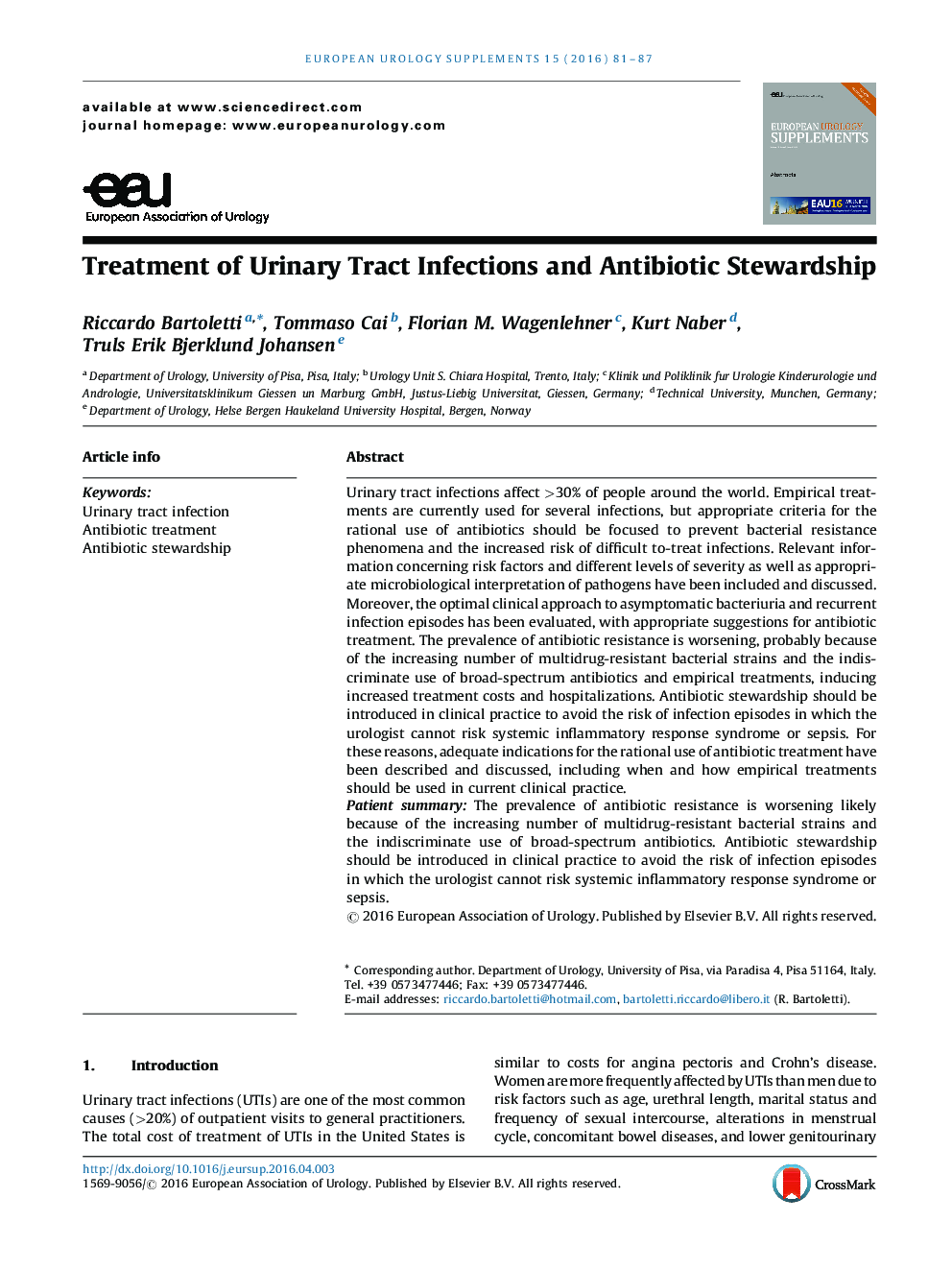| Article ID | Journal | Published Year | Pages | File Type |
|---|---|---|---|---|
| 3930580 | European Urology Supplements | 2016 | 7 Pages |
Urinary tract infections affect >30% of people around the world. Empirical treatments are currently used for several infections, but appropriate criteria for the rational use of antibiotics should be focused to prevent bacterial resistance phenomena and the increased risk of difficult to-treat infections. Relevant information concerning risk factors and different levels of severity as well as appropriate microbiological interpretation of pathogens have been included and discussed. Moreover, the optimal clinical approach to asymptomatic bacteriuria and recurrent infection episodes has been evaluated, with appropriate suggestions for antibiotic treatment. The prevalence of antibiotic resistance is worsening, probably because of the increasing number of multidrug-resistant bacterial strains and the indiscriminate use of broad-spectrum antibiotics and empirical treatments, inducing increased treatment costs and hospitalizations. Antibiotic stewardship should be introduced in clinical practice to avoid the risk of infection episodes in which the urologist cannot risk systemic inflammatory response syndrome or sepsis. For these reasons, adequate indications for the rational use of antibiotic treatment have been described and discussed, including when and how empirical treatments should be used in current clinical practice.Patient summaryThe prevalence of antibiotic resistance is worsening likely because of the increasing number of multidrug-resistant bacterial strains and the indiscriminate use of broad-spectrum antibiotics. Antibiotic stewardship should be introduced in clinical practice to avoid the risk of infection episodes in which the urologist cannot risk systemic inflammatory response syndrome or sepsis.
